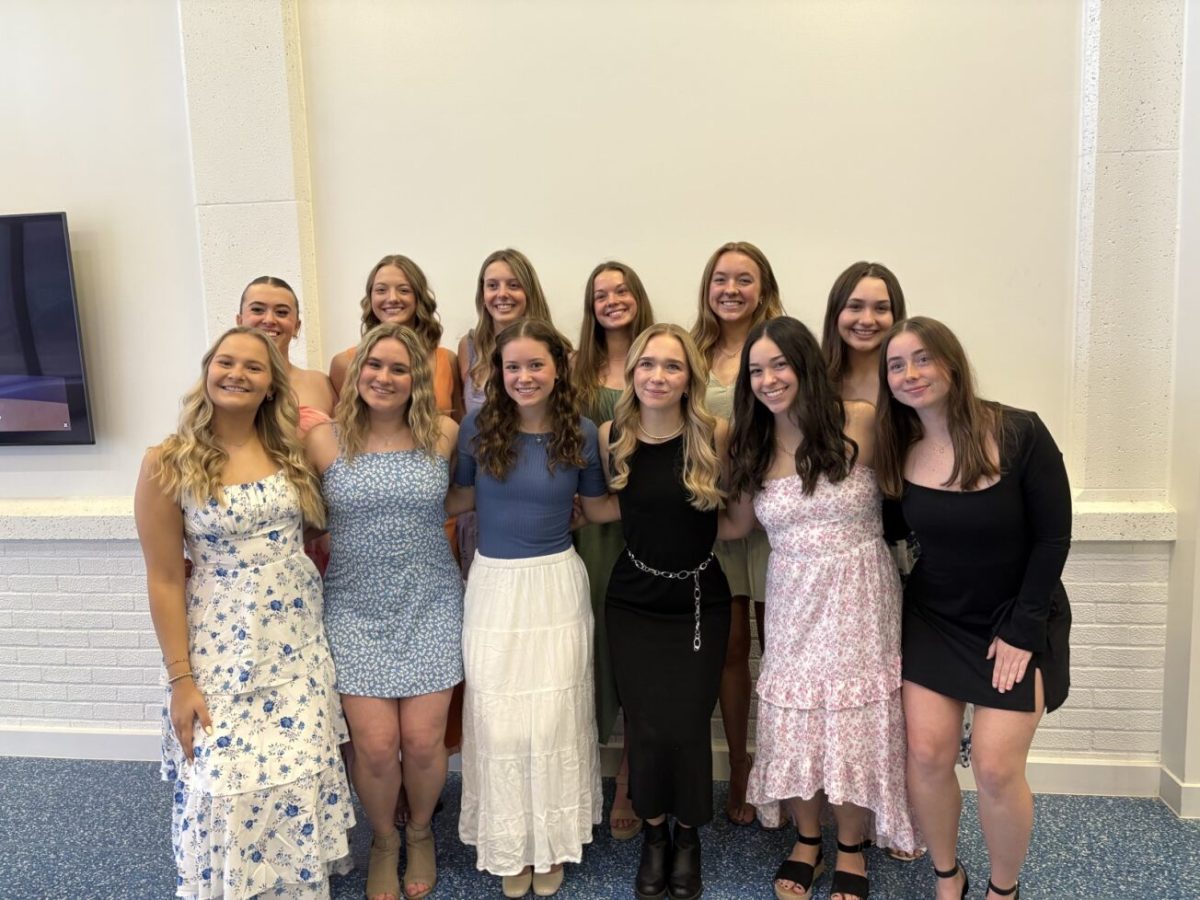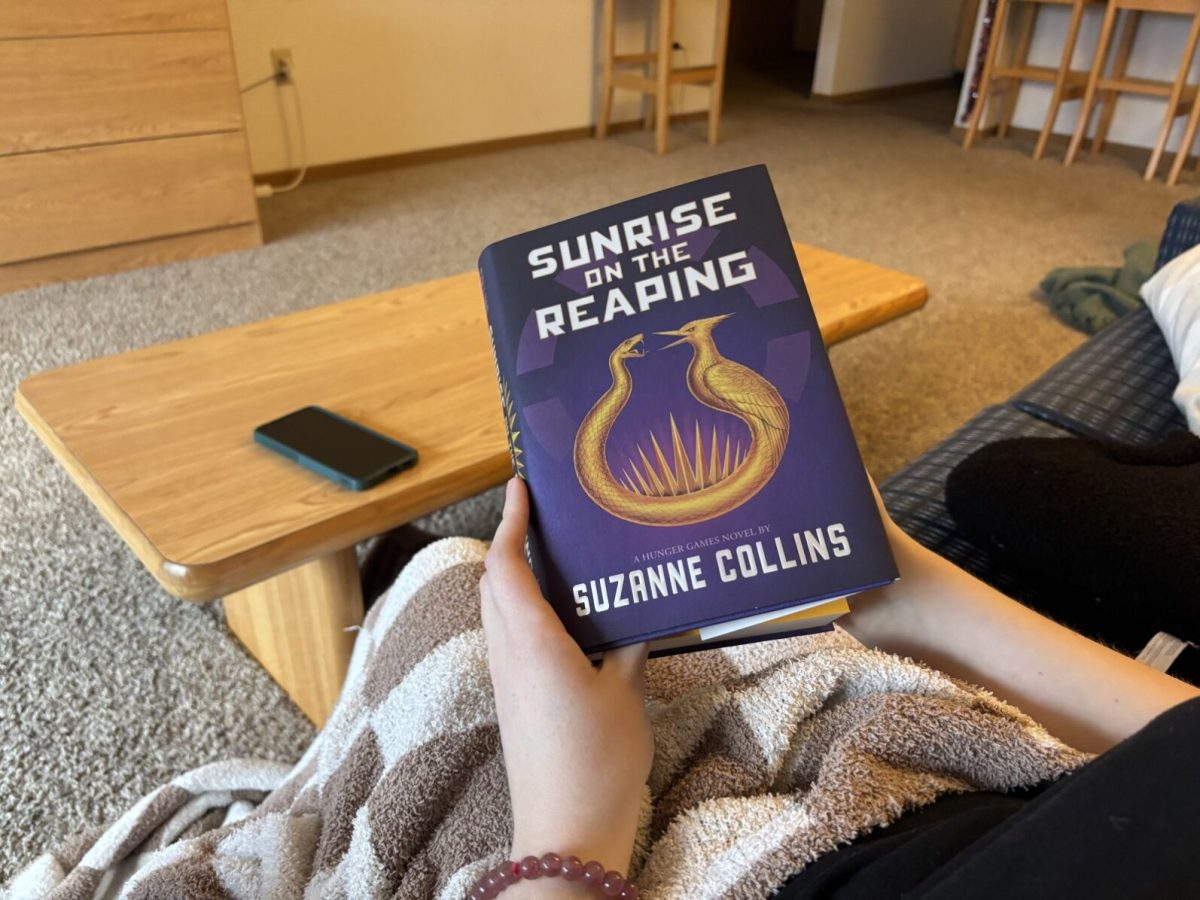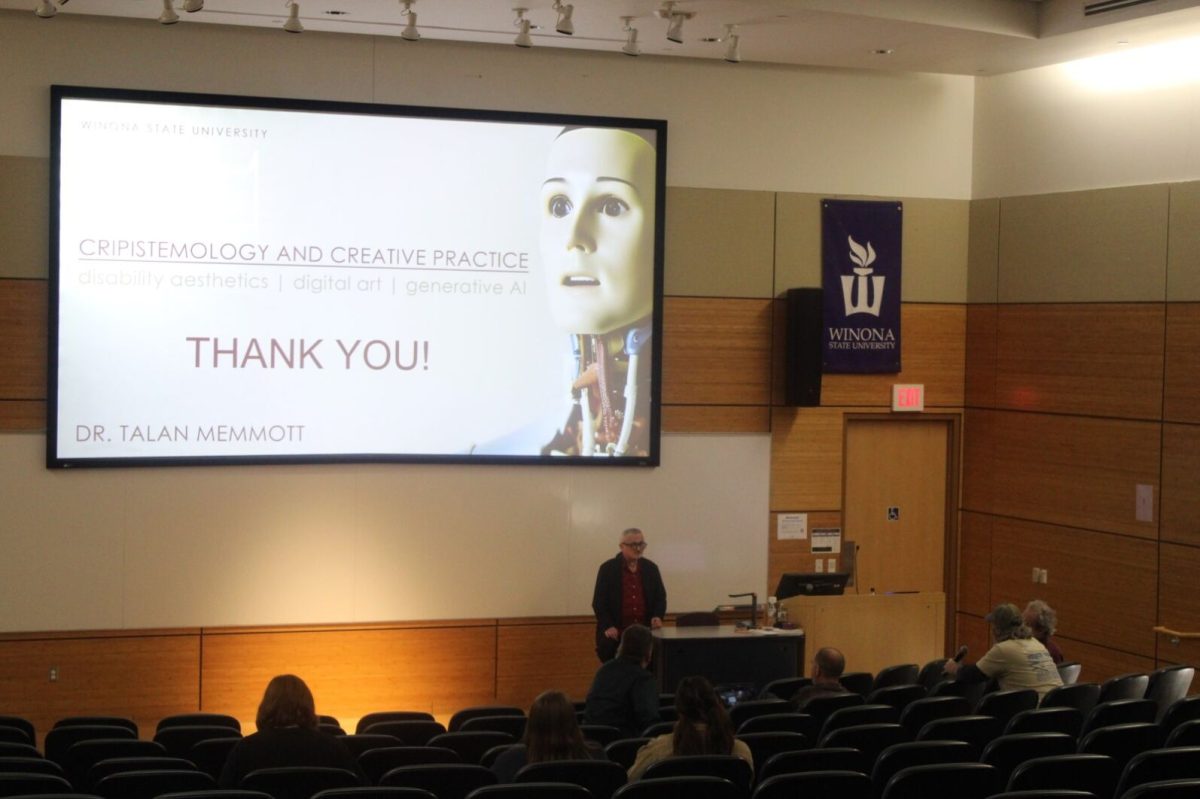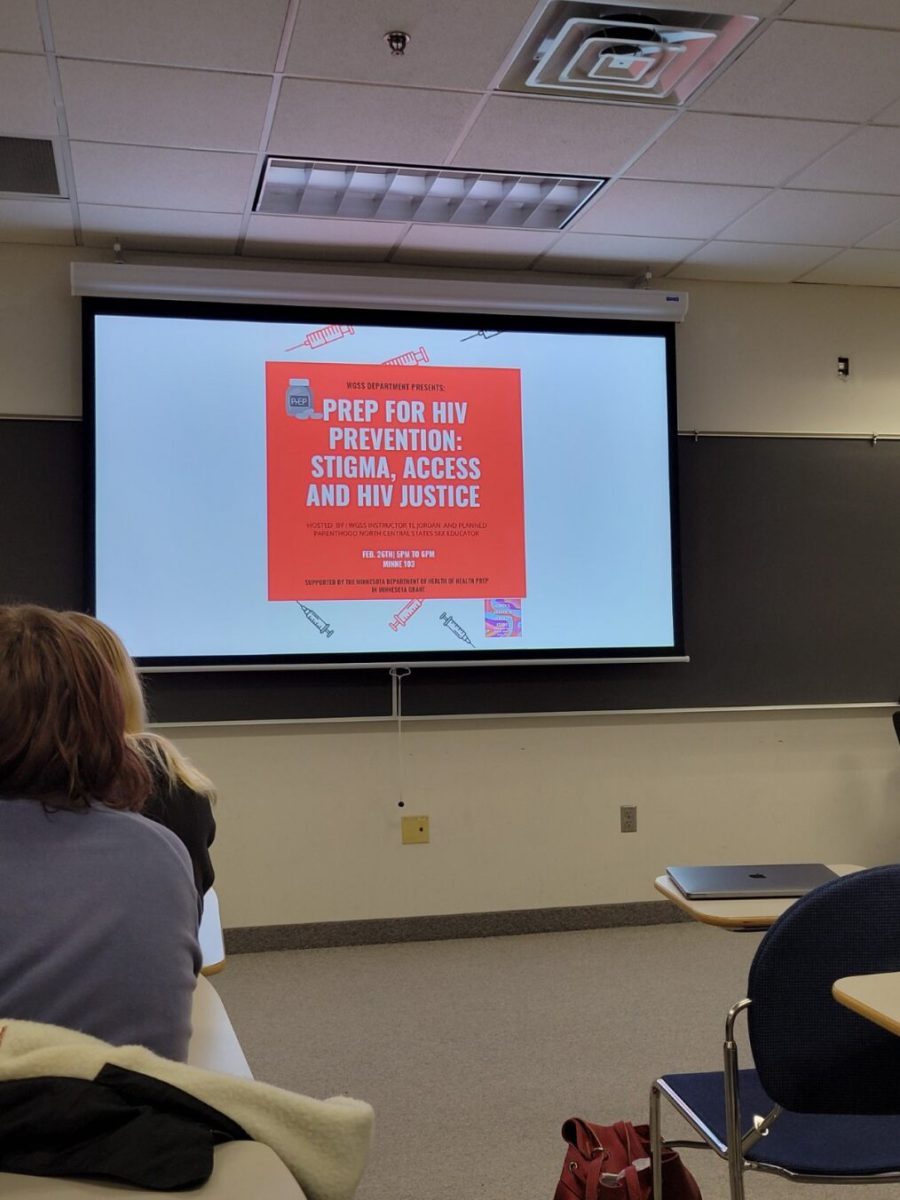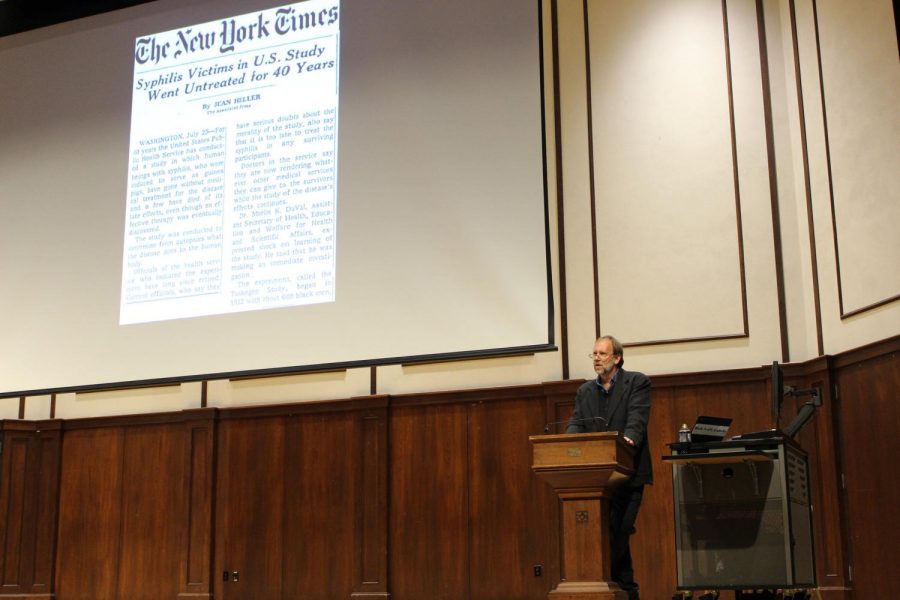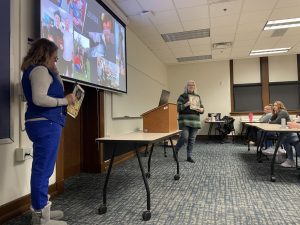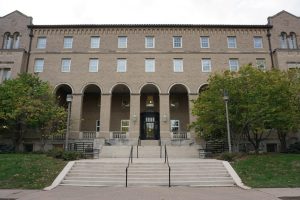Keynote speaker addresses issues in bioethics
Carl Elliot, a professor at the University of Minnesota Twin Cities, shows a news clipping from the Tuskegee Research Project during his presentation about ethics in medicine last Monday in the Harriet Johnson Auditorium.
October 18, 2017
Monday, Carl Elliot, a professor in the Center for Bioethics and the Department of Pediatrics at the University of Minnesota: Twin Cities, gave a Keynote Address on campus. The address regarded wrongdoings in the medical world, how to prevent them and how they have been covered up in the past.
In his speech, Elliot started out with a story from the University of Minnesota in which a young man named Dan Markinson was pressured into an experiment in which he was to stop taking his prescribed medications so the scientists could see the effect it had on him. He later ended up killing himself.
Elliot then ties this story to another wrongdoing in the medical community: the Tuskegee Syphilis study, before later discussing ways in which morally unjust events in the medical community can be avoided.
This discussion was inspired by this year’s Common Book Project choice, “The Immortal Life of Henrietta Lacks.” The common book project is put on by the English department, and each year one book is chosen for all English 111 classes to read.
During his keynote address, Elliot discussed how scientists decide what is morally just when conducting experiments, taking a special interest in the Tuskegee syphilis study, which began in the 1930s. This study is also greatly discussed in “The Immortal Life of Henrietta Lacks” as it in many ways mirrors things that happened to her.
First-year creative digital media major, Aidan Walsh, gave a brief history of the study: doctors wanted to see how syphilis naturally deteriorates the body, and to do this, they lied to the men, saying that they were being treated for having bad blood. However, these doctors predominantly preyed on black men and in most cases, didn’t treat them at all, even after it was found that penicillin could cure syphilis.
“What the doctors did at Tuskegee was horrible to those men.” Walsh said, “The men couldn’t do anything about it because they thought they were being treated for ‘bad blood’ but instead they were being tested on so that doctors could research more about Syphilis.”
The events that Elliot discussed regarding Tuskegee is related to the things that happened to Henrietta Lacks.
She was a young black woman in Maryland who was diagnosed with cervical cancer. She had signed forms granting consent to be treated for her cancer, but instead her treatment was cut short and her doctors took samples of her tumor without her knowledge.
Her cells are still used for medical research world-wide, but for decades her family had no knowledge that Lacks’ cells were being used. Even though Lacks’ cells were bringing in millions of dollars worth of profit, Lacks’ family was never compensated. It is believed that the doctors felt more able to take advantage of Lacks because she was black, which is similar to the events in the Tuskegee syphilis study.
First-year film studies major Noah Mruz believes that “The Immortal Life of Henrietta Lacks” should have a great impact on students and that students should feel uncomfortable reading about the terrible things that happened not only to Lacks, but also to the black men in Tuskegee.
“I believe that this book was chosen [for the Common Book Project] because of the impact it should have on us students,” said Mruz “Hopefully it will encourage people to say something when they see ethical violations in the medical world.”
Elliot’s speech informatively addressed the issue of morality in medical research. Morality continues to be a hot topic in the medical community, as there is more and more debate over what is right and wrong.






